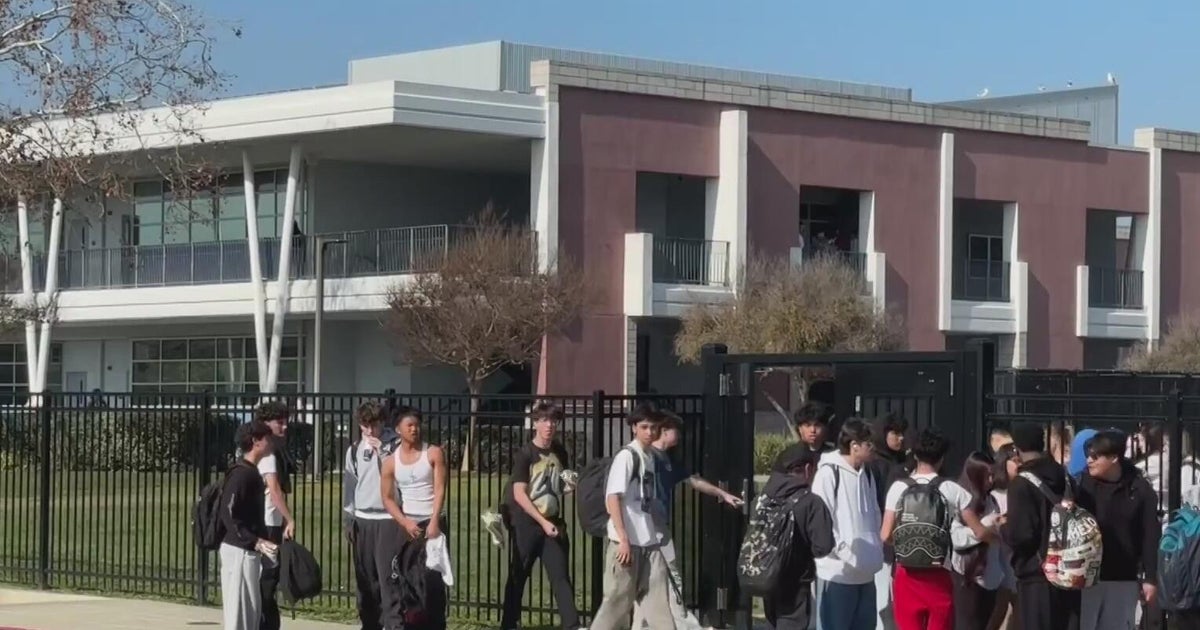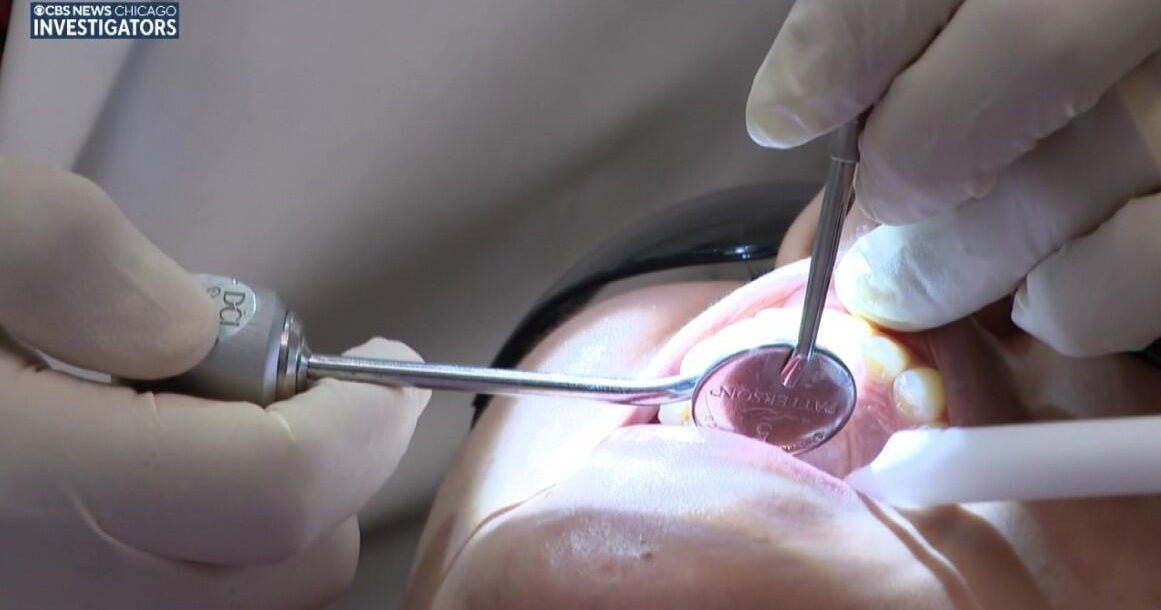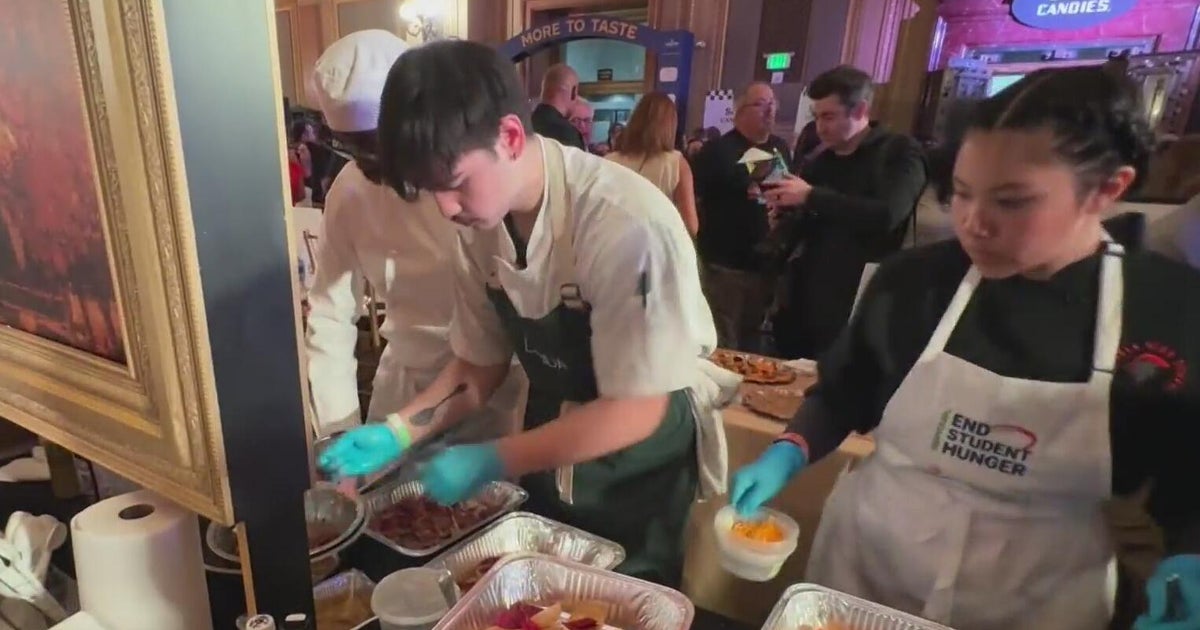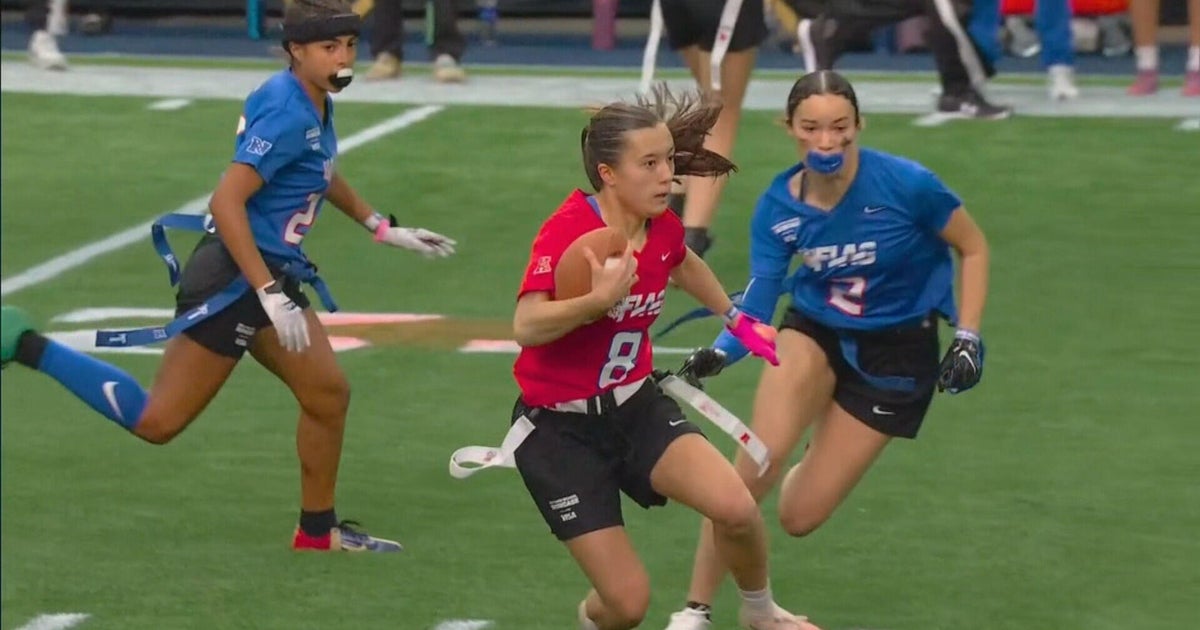Skyline High School's Culinary Students Challenge School Lunch Stigma
DALLAS (CBSDFW.COM) - You might think that school lunches are not the most craveable meals of the day, but a group of kids in the Dallas Independent School District are trying to change that. The students in Skyline High School's culinary arts program are cooking up lunches that are anything but boring.
They will compete against a dozen other regional teams of young chefs in a 'Cooking Up Change' challenge on Friday at the Art Institute of Dallas. The goal of the challenge is to reconceptualize school lunches. The winning team will go on to participate in the national competition.
But the competition rules are tough, even for experienced chefs. The meals must be healthy and adhere to the USDA's national nutrition guidelines for school lunches. The students also have to stick to a tight budget, considering that school lunches only cost about $1.40 per student.
Ana Molina is a junior at Skyline High School. "Our team came up with what we call the Tejano Fiesta Bowl. It's a compilation of rice, black beans, corn, diced tomato, chicken," she said. "It's all topped off with a dollop of sour cream and some shredded cheddar cheese on the top."
"It was a combination of all of our upbringing foods. We have a lot of Texan elements," Molina added. "It actually tastes really good for $1.40."
Meanwhile, sophomore Adam Montiel and his team of young chefs worked on a Chicken Alfredo Flatbread. "The hardest part was probably the budget," he admitted. "It was very hard, and with the strict guidelines from the calories, the sodium and the low sugar."
The winner of the competition could also see their creations end up on the menu in the Dallas ISD, so that everyone can enjoy these student-created dishes. Skyline High School has had a culinary arts program since opening in 1971. Culinary instructor Adam Bazaldua thinks that it is great to see their work added into the actual menu.
"There's a stigma associated with school lunches that people think is just mush or cafeteria food," Bazaldua said. "Dallas ISD does a good job of elevating that, and I think that incorporating the culinary arts students with their skill set is really going to help elevate those as well."
The project has opened the eyes of his students, and given them a greater appreciation of what it is actually like to work in the food service industry. "It's good for them to have a better appreciation and better understanding of what the food is and why things may be different than what they would do," Bazaldua said.
"We criticize lunch, but we don't take into consideration all the thought that goes into it," Molina added.
Bazaldua also appreciates what programs like culinary arts and others do for Dallas ISD's students. "These programs give real skill sets for real life industries," he added, "and opens up the possibilities after school, where college isn't necessarily the only route."







